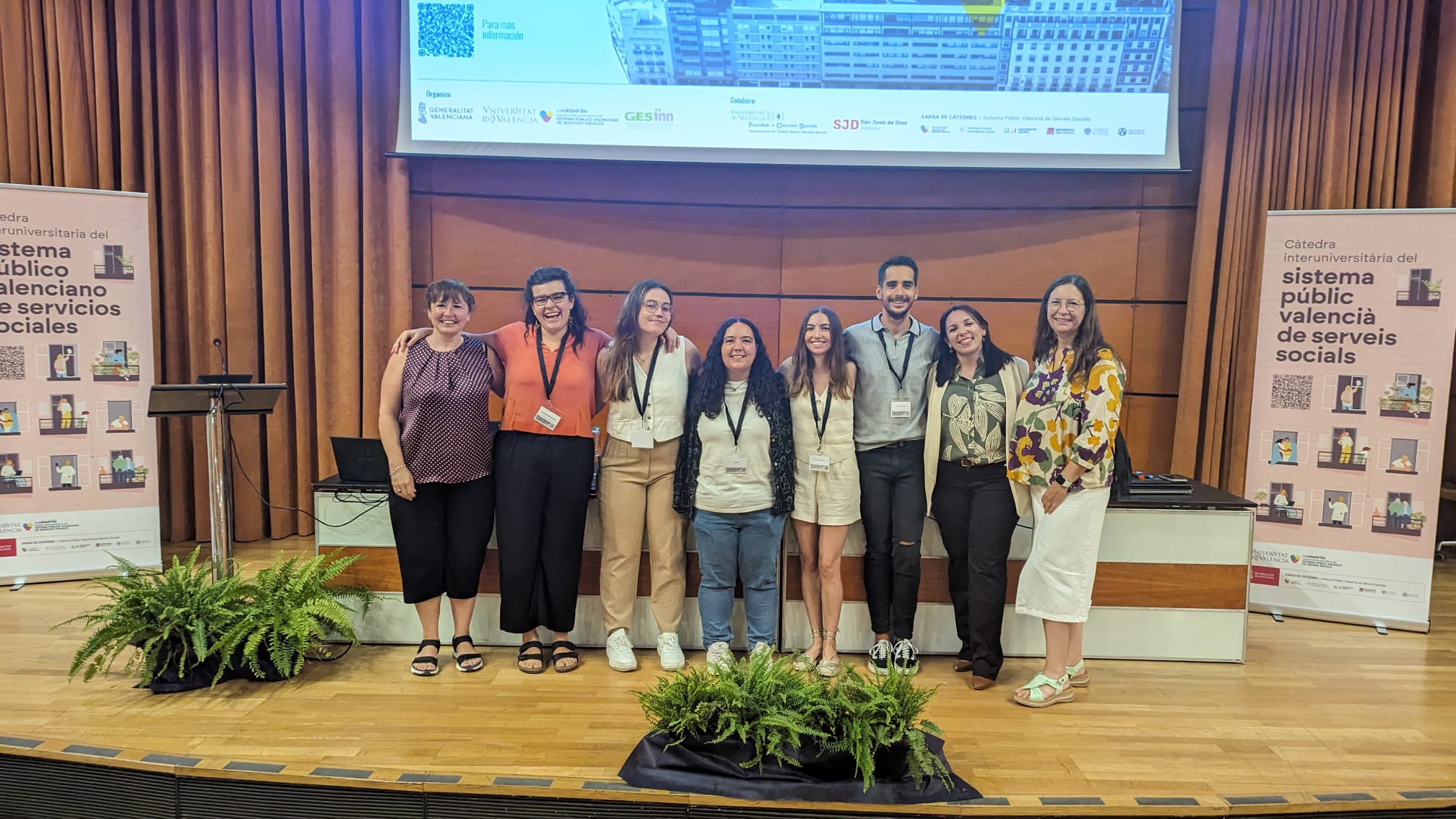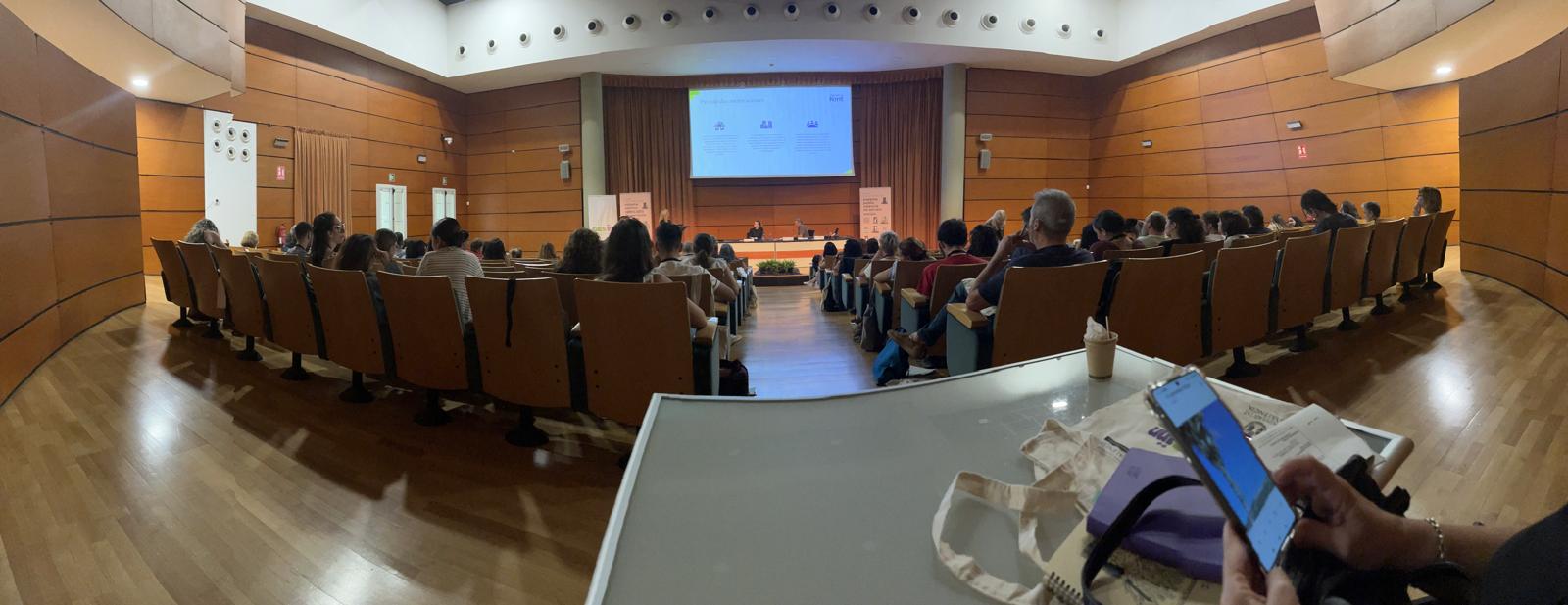The 2nd International Congress of Residential Inclusion, held from Wednesday to Friday, exceeded all expectations with an attendance of over 230 people, almost reaching the limit capacity.

The 2nd International Congress of Residential Inclusion, held from Wednesday to Friday, exceeded all expectations with an attendance of over 230 people, almost reaching the limit capacity. This crucial event, organised by the UV Chair for the Valencian Public System of Social Services and Gesinn research group, also had the collaboration and key support of Sant Joan de Déu Valencia and the Department of Social Work and Social Services.
For three intense days, the congress became a vibrant space for reflection and debate, gathering experts, professionals and entities from the sector to tackle the big challenges that the care for homeless people faces. Inspiring conferences, dynamic panel discussions and passionate debates focused the spotlight on the urgency of guaranteeing the right of decent housing and on the need to rethink the public politics from a comprehensive perspective.
The first day, dedicated to pre-congress activities, included an online poster exhibition and a meeting of the Research Network about Women in a Situation of Homelessness, which was very productive, setting the ground works for future collaborations in this field.
The second day begun with the official inauguration by the authorities and the Opening Conference of the Dr. Yolanda de la Fuente, titled ‘When the essentials are invisible to the eyes. Co-creating a humanised urban planning’, which offered a critical and humane overview on urban planning and its relation with social inclusion.
After the coffee break, Dr. Malena Lenta presented her conference about childhoods and homelessness in Argentina, while Dr. Carin Tunaker shared her studies on rural homelessness in England and her current research about the LGTBIQ+ homelessness, providing innovative and enriching perspectives.
On the afternoon, the first two panel discussions were held. The first one, moderated by Dr. Andrea Sixto, addressed the ‘Health on the population in a homelessness and residential exclusion situation: Challenges and strategies’. The second panel, conducted by Dr. Elena Matamala, focused on the ‘Realities and challenges of homelessness and residential exclusion’, presenting studies from the intervention and academic research which provided complementary and practical views.
The third and last day begun with Dr. Raquel Sanz exhibition about the results from the National Homeless Census 2023, focusing on the Valencian Community. Afterwards, a conference about good practices in homelessness was presented, in which a collaborative research between professionals, UV researchers and people in a homelessness situation was explained.
The day concluded with the last two panel discussions. The first, titled ‘Gender and intersectionality in residential inclusion’, was moderated by Dr. María Virginia Matulič Domadzič, while the second one, ‘Approaches, public politics and intervention proposals for the residential inclusion’, was in charge of Dr. José Javier Serrano Lara. Both panels delved into the importance of integrating and multidisciplinary approaches in the fight against residential exclusion.
The congress ended with a closing act directed by D. Pedro Carceller, Inclusion and Development Cooperation Director General; Isabel Tortajada Veintimilla, San Juan de Dios Valencia Director; and Dr. Mercedes Botija Yagüea, Director of the UV Chair for Valencian Public Social Services System.
Without a doubt, these have been three intense and profitable days in which a learning and exchange space was created, allowing the attendees to not only update their knowledge, but also to reflect about the challenges and opportunities of residential inclusion. The conferences and panels provided enriching debates and future collaborations that, no doubt, will contribute to the development of new strategies to fight against homelessness from multiple perspectives. For those who are interested, the book with summaries of the congress is already available on the event website.
The congress is brought to an end with the promise of continuing down this path until the next edition, in which we’ll keep moving forward together towards a more inclusive and fair society.
Images:


.jpeg)


.jpeg)







